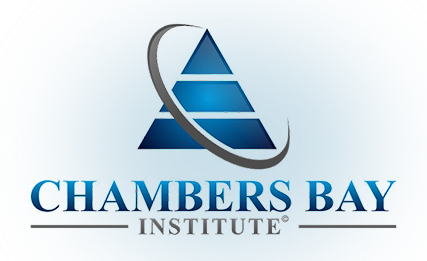
by Bruce LaRue, Ph.D. and Jim Solomon
Leaders possess the unique ability to see what isn’t there, channeling the collective energy of others to make their vision a reality. Simply stated, leadership is about leading change.
Are you an Integrator Leader?
Ask yourself the following questions and then examine the Principles that Guide the Integrator Leader. Are you setting the compass heading for your team with clear intent and rationale to guide their action? Are you operating at the helm or in the engine room? Are you focusing on what and why while empowering your team to come up with how to get you there?
To become a more effective leader, consider adopting these six-principles that guide the Integrator Leader.
Principle 1:
Work Yourself Out of Your Job | As an Integrator Leader, make it your objective to work yourself out of your job. This is your fastest route to success. Many leaders try to make themselves indispensable—this leads to the High Producer’s or Founder’s Trap and should be avoided at all costs. Instead, you want to make your team less dependent upon you over time. Coach, mentor, give your team suggestions and guidance, but do not solve problems for them. Ultimately, you want your team to own the solution, rather than merely follow your orders.
Principle 2:
Integrated Solutions Require Integrated Operations | Looking at your organization through the eyes of your customer, you must assume that customers don’t necessarily want what you are selling. Yet, they cannot necessarily tell you exactly what they do want. Instead, what customers expect are integrated solutions to their problems. However, we can’t create integrated solutions if we are fragmented internally; integrated solutions require integrated internal operations.
Principle 3:
Focus on Outcomes Rather than Inputs | We must turn the mechanistic management paradigm inside-out. The industrial age paradigm focused on worker input rather than the outcomes achieved. Yet the only thing customers really care about is the outcome: that is, the products and services that they purchase. Too often, workers are expected to simply follow processes without analyzing and improving them. Unfortunately, standard operating procedures can become a substitute for thinking and innovation. We want people to be involved in continually refining the processes that they are expected to follow, and to be accountable for the outcomes they achieve.
Principle 4:
From Command and Control to Strategic Intent | The most effective military leaders we work with a focus on defining their intent, giving maximum latitude to front-line troops on how best to accomplish their mission. The U.S. Army refers to this as Mission Command or moving from a system of rigid, top-down control to commanders viewing front-line troops as their eyes and ears on the ground and as their operational advisors. Translating this to the civilian sector, the most effective leaders we work with today provide the compass heading, meaning that they set the priorities and the criteria by which they will judge a successful outcome. Employees then operate freely within appropriate left and right boundaries to create the roadmap for how to achieve the intended outcome.
Principle 5:
Whole Systems Perspective | We too often think of the future in terms of the past. Favored ways of seeing become ways of not seeing. Individuals and functional groups become too myopic, failing to understand the big picture and what they need from one another for the operation as a whole to succeed. The team needs to view things from the canopy, so they don’t get disoriented when they’re on the jungle floor.
Principle 6:
Ask — Don’t Tell | To the greatest extent possible, you want the team to own the how; ownership is key to building a culture of commitment. As the legendary management consultant Peter Drucker said, “the leader of the past knew how to tell; the leader of the future will know how to ask.” He was not referring to being polite, but rather acknowledging the fact that knowledge workers know more about their job than their boss. Therefore, they must define the task. That is, specialized knowledge workers hold the critical operational
intelligence necessary to accomplish the mission.
Are you going to adopt these 6 principles?
Help build the next generation of capable leaders – share “Become an Integrator Leader by Applying These 6-Principles” with your community! Learn more from our team at Chambers Bay Institute and our latest book “Seeing What isn’t There – A Leader’s Guide to Creating Change in a Complex World”.

You must be logged in to post a comment.